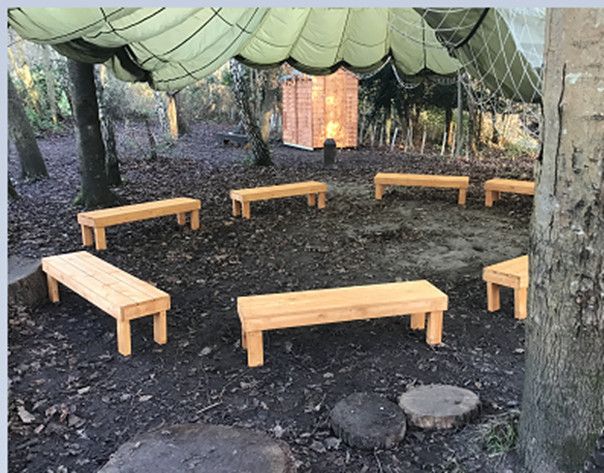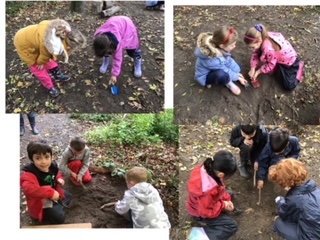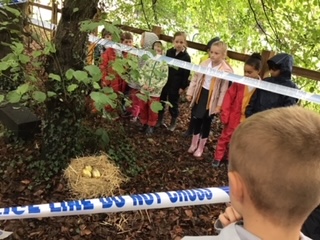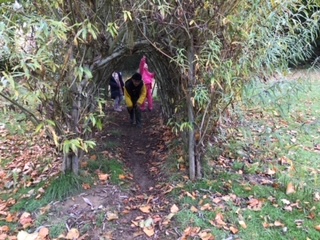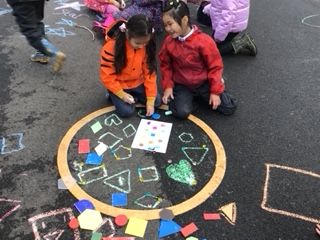Outdoor learning
Rationale
At Holy Trinity Primary School, we are extremely fortunate to be surrounded by a rich, diverse outdoor environment. Our school grounds include multiple playgrounds, a sensory garden, a pond, a large open field and then our woodland area which is now home to our ‘Woodland Classroom’.
We believe that outdoor learning enables children to:
· Be active participants in their learning rather than simply ‘receiving’ information.
· Improve their communication skills and critical thinking skills when problem solving. This in turn leads to improved confidence and self-esteem when success is achieved and improved resilience which is brought back into the classroom learning environment.
· Improves emotional health and wellbeing.
· Impacts positively on engagement with learning and behaviour.
· Is inspiring and motivating, providing memorable experiences.
· Enables children to take their learning in different directions and approach problem solving tasks in a creative, collaborative way with less restrictions.
· Provides opportunities for children to show their learning in different ways.
· Enables children to deepen their long-term memory by connecting to previous learning experiences and attaching an emotional and physical memory to their learning.
Intent
It is our intent that every child is given the opportunity to learn in the best way for them. For many children this involves being an active participant in their learning and being able to engage in their learning in such a way that deepens the levels of understanding. By taking learning outside as often as possible we are giving the children the opportunity to build upon previous learning and jump into new challenges feet first!
Lessons are planned and linked to the national curriculum objectives for each particular year group and also linked to the ‘Cornerstones’ topics that are covered throughout the school. Children are exposed to a variety of curriculum areas using the outdoor environment for example PSHE, Science, Maths or Literacy. By building on lessons that take place in the classroom the children can link their prior knowledge and use their enthusiasm for the outdoor challenges to embed new knowledge and skills into their long-term memory.
Implementation
Outdoor Learning is carefully planned within the different curriculum areas and Cornerstones topics to both supplement and complement the learning that takes place inside the classroom. The teachers use ‘Al Fresco Learning’ lesson plans to help plan lesson sequences and provide opportunities to develop practical learning skills outside the classroom. These plans use innovative, engaging ideas to capture interest and inspire children to use natural resources such as conkers, sticks and acorns to support practical concepts, particularly in maths.